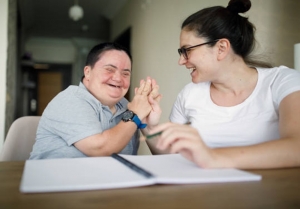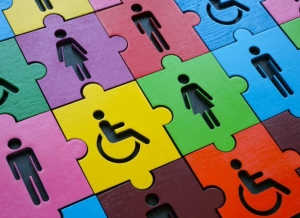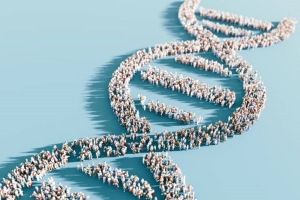Autistic individuals in the UK are enduring severe challenges due to a failing system, according to a new report from the National Autistic Society. Authored by autistic staff, the report highlights inequalities in health and social care, education, employment, and mental health. With autistic people dying six years earlier than the general population, the charity is urging the government to prioritise autism in its policy agenda and include autistic voices in the NHS 10-year plan.
The report calls for urgent investment in community mental health services, noting that 1,430 autistic people are in mental health hospitals in England. Only 14% of autistic adults feel there are adequate services in their area, leaving many without support. Referrals are often rejected, and individuals are bounced between fragmented services. The charity warns the new Mental Health Bill will fail without substantial investment in preventative care.
Education is another battleground, with nearly three-quarters of parents believing their autistic children’s school places do not meet their needs. Many families wait years for support or are forced into SEND Tribunals, where most cases favour parents, exposing systemic failures. Meanwhile, over 200,000 people await autism assessments, with little support before or after diagnosis.
Mel Merritt, Head of Policy and Campaigns, called the constant fight "exhausting" and urged the government to prioritise autistic people in reforms, proposing a £1.3 billion investment over 15 years to address barriers and improve support systems.
Three charities supporting autistic people and their families are set to benefit from the National Autistic Society’s annual Boshier Grant Scheme. Brook Young People, Restraint Reduction Network, and Surrey Minority Ethnic Forum will receive funding to focus on key areas such as healthy relationships, childbirth, and addressing the needs of autistic individuals and carers in ethnic minority communities.
Launched in 2023 in partnership with Thea and Peter Boshier, the grant scheme provides up to £25,000 to registered UK charities. The Boshiers, who have personal and professional ties to autism, expressed their excitement about supporting impactful projects for a second year. They commented: “These grants will make a significant difference, and we are eager to see the outcomes of the work carried out in the coming year.”
Brook Young People will use the funding to co-design a set of resources with autistic young people, ensuring that Relationships and Sex Education (RSE) sessions are accessible and inclusive. Restraint Reduction Network plans to create resources for autistic individuals and maternity staff, aiming to improve experiences during pregnancy and childbirth. Meanwhile, Surrey Minority Ethnic Forum will focus on reducing stigma and providing culturally sensitive support and training for families and carers.
The Boshier Grant Scheme’s next funding cycle is scheduled to open in July 2025, offering further opportunities to support innovative autism-related projects across the UK.
The Social Care Institute for Excellence (SCIE) has introduced best practice guidance to help the adult social care workforce address inequalities faced by individuals with learning disabilities and autistic people. The project explores key challenges such as delays in diagnosis, lack of reasonable adjustments, and the issue of ‘diagnostic overshadowing,’ where physical or mental health concerns are overlooked due to the focus on a person’s disability.
This guidance provides practical advice for social care workers to enhance the care experience for people with learning disabilities and autism. It aims to build confidence among workers and commissioners in delivering services, while increasing understanding of the legal frameworks that underpin effective and inclusive care.
The initiative draws on insights from the SCIE Fliers, a group of individuals with lived experience of learning disabilities and autism. Their experiences, including lessons from the Covid-19 pandemic, highlighted the longstanding challenges in care provision, such as a lack of awareness and skills within the health and social care workforce to address health risks for this group. The guidance incorporates feedback from service users, commissioners, and existing resources to promote co-production in service design.
Kathryn Smith OBE, SCIE’s Chief Executive, emphasised the importance of breaking down systemic barriers and ensuring high-quality, accessible care that empowers individuals. A co-created video featuring the SCIE Fliers has been developed to complement the guidance, further amplifying the voices of those with lived experience.
A new report from the Public Accounts Committee (PAC) has revealed severe failings in the special educational needs and disabilities (SEND) system, leaving families without adequate support and pushing nearly half of England’s councils towards potential financial collapse within 15 months. The committee has called for immediate government action to address the disparities in SEND provision and prevent a generation of vulnerable children from being left behind.
The report highlights vast differences in waiting times for Education, Health, and Care Plans (EHCPs) across the country, with only 50% issued within the required 20 weeks in 2023. It also notes a sharp rise in parents appealing SEND decisions, with tribunals overwhelmingly ruling in favour of families, reflecting systemic inefficiencies. The PAC has urged the Department for Education to investigate the causes of rising demand for SEND support, address inconsistencies in how needs are identified, and ensure sufficient resources are available for inclusive education.
The financial strain on local authorities is a key concern, with many councils accumulating significant deficits due to escalating SEND costs. The cumulative £4.6 billion shortfall in educational budgets poses a serious threat to the viability of local government finances. The PAC has demanded the government outline plans to address these deficits by March 2025 to avoid further disruption to SEND services.
Committee Chair Sir Geoffrey Clifton-Brown criticised the lack of urgency in addressing the crisis, describing the situation as an emergency that has been ignored for too long. He stressed that families and councils are being let down by a failing system, calling for decisive action to deliver meaningful reform and ensure children receive the support they need.
New research reveals that over 60 million people worldwide were living with autism in 2021, making it one of the top ten causes of non-fatal health burden for those under 20. This equates to an estimated one in 127 people globally being autistic, a significant increase from the one in 271 reported in 2019. The findings, published in The Lancet, are based on data from the Global Burden of Disease Study 2021.
The study highlights a notable gender disparity, with autism prevalence among males (1,065 cases per 100,000) nearly double that of females (508 per 100,000). High-Income Asia Pacific regions, including Japan, reported the highest prevalence globally (1,560 per 100,000), while Tropical Latin America and Bangladesh recorded the lowest. Autism affects individuals across all ages worldwide, with disability-adjusted life-years (DALYs) increasing due to population growth.
Researchers stress the urgent need for early diagnosis and sustained support for autistic individuals and their families. Enhanced data collection, alongside targeted interventions for associated risks like suicide, are essential for improving outcomes. These measures would help inform policies aimed at improving the quality of life for autistic people globally.
The authors emphasise that while early intervention is vital, addressing the evolving needs of autistic individuals throughout their lives, particularly under-represented adults, is equally important. The study was funded by Queensland Health and the Bill & Melinda Gates Foundation.
New research highlights the direct link between staff psychological wellbeing and the quality of support provided to individuals with learning disabilities. Published in the Journal of Applied Research in Intellectual Disabilities, the study systematically reviewed findings using the Maslach Burnout Inventory Human Services Version (MBI-HS) to explore burnout among staff in this field.
The findings confirm that the psychological demands of caregiving can negatively impact staff wellbeing, often leading to burnout. Interestingly, general exposure to challenging behaviours, including their frequency and the type of support offered, was not directly associated with burnout. However, one study revealed that emotional exhaustion was strongly influenced by staff fear of assault, suggesting that addressing this fear could reduce burnout levels.
The research reiterates previous evidence that staff in good psychological health deliver higher-quality care and are less likely to be absent or leave their roles. This improves care continuity, benefiting both clients and services. The study underscores the need for further research into the factors that influence staff wellbeing, particularly those that may enhance resilience and reduce burnout.
The authors advocate for a national observatory to monitor staff wellbeing and explore influencing factors systematically. This would allow for the standardisation and coordination of wellbeing data across services, creating a clearer understanding of the relationships between staff wellbeing, service settings, and client needs.
A new guide has been published to help practitioners use human rights principles to improve decision-making and outcomes for young autistic people and those with learning disabilities. Commissioned by the Local Government Association in collaboration with the British Institute of Human Rights, the guide emphasises the importance of person-centred, least restrictive practices.
Targeted at practitioners working with 14 to 25-year-olds, the guide provides information on human rights duties alongside practical case studies. It explains how the UK’s Human Rights Act (HRA), which incorporates rights from the European Convention on Human Rights into UK law, can be applied to everyday care. Practitioners are encouraged to use the HRA framework to review decisions internally, work collaboratively with colleagues, and address issues with other services, all while focusing on delivering quality, person-centred care.
The guide also stresses the importance of empowering young people, their families, and advocates to understand and assert their rights. It highlights the need to listen and respond to concerns about public bodies not respecting or protecting these rights. Effective care planning is key, ensuring individual needs and preferences are reflected in plans while any restrictive measures are carefully considered and justified.
Key rights discussed include freedom from discrimination, the right to liberty, the right to respect for private and family life, and protection from inhuman or degrading treatment. The guide aims to ensure these principles underpin all decisions and practices, supporting young people in achieving the best possible outcomes.
Canadian scientists have identified a gene, DDX53, as a contributor to autism, marking a significant step forward in genetic research on the condition. The discovery, published in The American Journal of Human Genetics, highlights the gene's role in brain development and function. Although located on the X chromosome, DDX53 was not previously associated with autism.
The study, led by researchers from The Hospital for Sick Children (SickKids) in Canada and Italy’s Istituto Giannina Gaslini, examined 10 autistic individuals from eight families. They found rare variants in the DDX53 gene that were inherited maternally. Further analysis of autism databases, including Autism Speaks MSSNG and the Simons Foundation Autism Research Initiative, identified an additional 26 individuals with similar DDX53 variants.
Dr Stephen Scherer, Senior Scientist at SickKids, stated that pinpointing DDX53 enhances understanding of autism's biological mechanisms, particularly in males. He emphasised that the discovery could lead to more accurate diagnostics for families. The study also underscores the complexity of autism, reinforcing the importance of detailed genetic analysis.
Lead researcher Dr Marcello Scala of the Istituto Giannina Gaslini said the gene had never been linked to neuropsychiatric conditions before. He noted that the findings not only support DDX53’s link to autism but also suggest the gene influences behavioural traits, paving the way for future research into related biological pathways.















